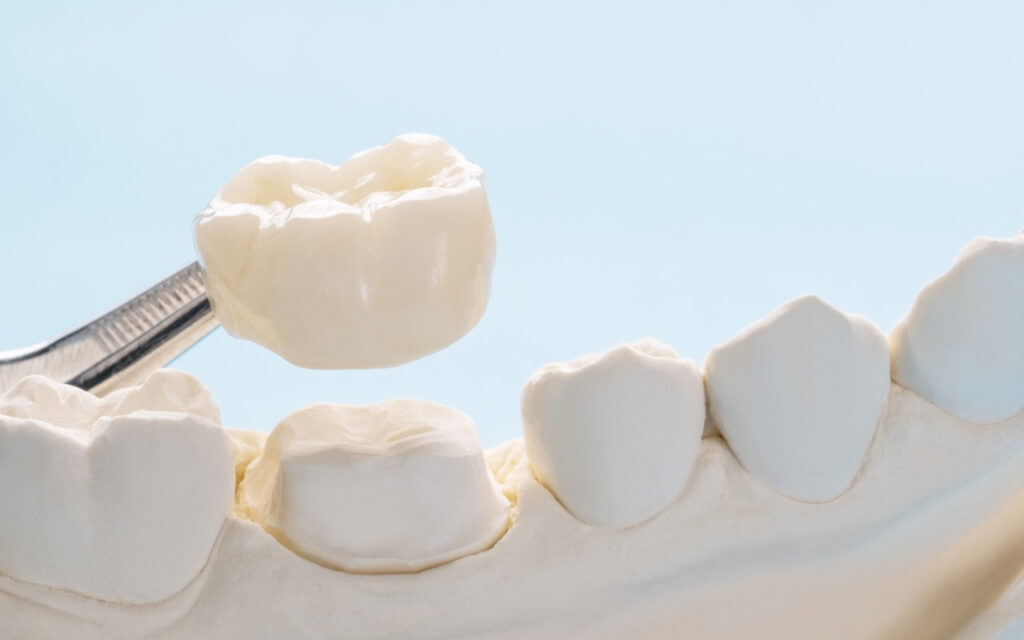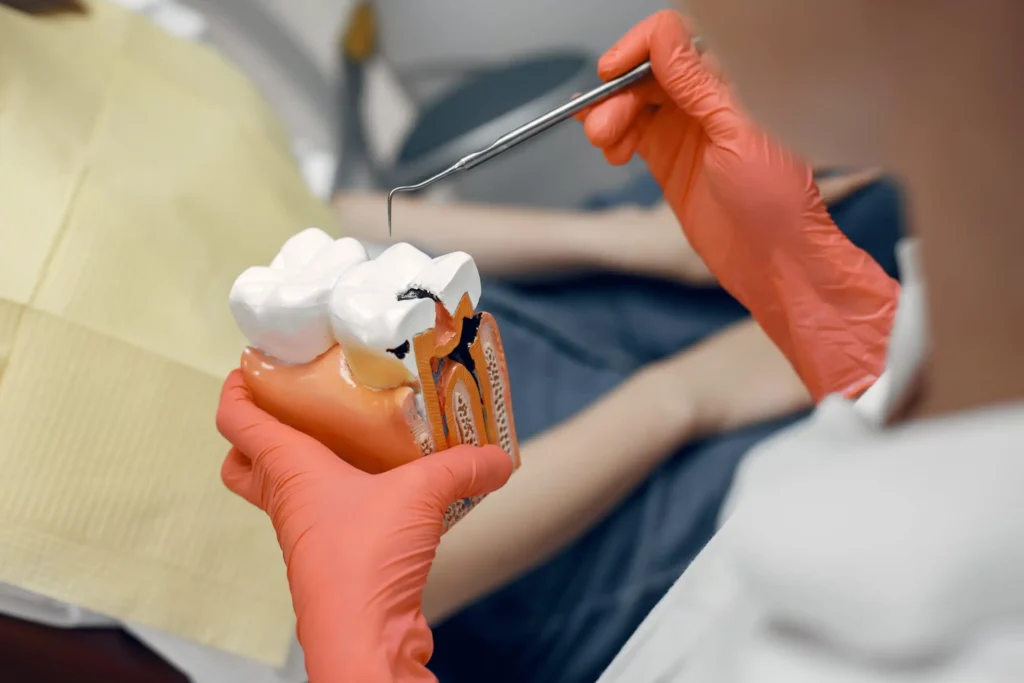What to Do When Porcelain Crowns Break and How to Prevent It
Porcelain crowns are a key solution in cosmetic dentistry, often used to restore the appearance and function of damaged or decayed teeth. These crowns, crafted to look like natural teeth, offer strength and durability. They help patients maintain a healthy smile by providing support to weak teeth, covering large fillings, or holding a dental bridge in place. However, despite their resilience, porcelain crowns can occasionally break, leading to discomfort and requiring immediate attention.
When a porcelain crown breaks, it can create a range of issues, from difficulty in chewing to potential irritation of the surrounding gums or tongue. Dealing with a broken crown can be a frustrating experience, and it often leaves individuals wondering about the best steps to take. Understanding why these breakages occur and knowing how to respond can ease the stress and help maintain oral health.
Why Do Porcelain Crowns Break?
Though porcelain crowns are designed for longevity, they are not indestructible. Several factors can contribute to the breakage of these dental restorations. One of the primary reasons is physical trauma to the mouth, which can result from accidents or sudden impacts. Biting down on hard foods or objects like ice, nuts, or hard candies also poses a risk, particularly if the crown is already weakened or improperly fitted.
Another significant cause of crown breakage is general wear and tear. Over time, the normal force exerted during chewing can impact the structural integrity of the porcelain. If you grind your teeth, the stress from this habit can accelerate damage to crowns. Additionally, poor dental habits, such as neglecting regular oral hygiene, increase the risk of breakage. This neglect can lead to decay at the crown’s edge, weakening the tooth beneath and the crown itself.
Immediate attention and the right preventive measures can make a big difference in the longevity of porcelain crowns. Recognizing these common causes ensures that the necessary precautions are taken, helping reduce the risk of future problems. Understanding why crowns break sets the groundwork for addressing them promptly and effectively, minimizing discomfort and disruption in daily life.
Immediate Steps to Take When Your Crown Breaks
Discovering a broken crown can be alarming, but knowing what actions to take can help manage the situation until professional care is available. Here are some immediate steps to follow:
– Avoid consuming hard or sticky foods that could further disturb the crown or the underlying tooth.
– Rinse your mouth gently with warm water to keep the area clean and remove any small fragments that might have come loose.
– If the broken crown has sharp or jagged edges, covering them with dental wax or sugar-free chewing gum can prevent cuts or irritation to your tongue or cheeks.
Keeping calm is crucial in these moments, and addressing the issue quickly can prevent further damage. Such steps are essential for maintaining comfort and ensuring that when you visit your dentist, the situation is as controlled as possible. This timely response not only eases discomfort but also proves instrumental in protecting the remaining tooth structure.
How Dentists Repair or Replace Broken Crowns
When a porcelain crown breaks, a dentist becomes your best ally in restoring your smile and comfort. The process starts with a thorough evaluation of the damaged crown and the tooth underneath. Often, temporary crowns provide a stopgap solution, shielding exposed areas and allowing you time to plan for permanent repair.
Here’s how a dentist can fix the problem:
– Assessment: First, the dentist examines the extent of the damage to determine the best approach. If the crown is salvageable, repair involves reshaping and smoothing any rough spots, sometimes using a composite resin to fill in minor chips.
– Replacement: If repair isn’t an option, the dentist will remove the damaged crown. They make an impression of your tooth to create a custom-fit crown that perfectly matches your bite and aesthetic.
– Temporary Crown: While waiting for a new crown to be crafted, a temporary crown covers the exposed tooth. This prevents discomfort and maintains your smile’s appearance.
– Fitting the New Crown: Once your new crown is ready, the dentist places it using a strong dental adhesive. They ensure it fits comfortably and looks natural before securing it in place.
These practical solutions ensure that your dental health isn’t compromised longer than necessary. Regular dental visits align with these treatments, keeping your crowns in excellent condition over the years.
Preventing Future Damage to Your Dental Crowns
Preventive care plays a big part in extending the life of your dental crowns. Being mindful of your habits can significantly reduce the chance of needing another urgent dental visit.
– Practice Good Oral Hygiene: Keeping your mouth clean prevents decay of the tooth supporting the crown. Brush twice daily and floss regularly.
– Avoid Hard Foods: Steer clear of hard candies, ice, and nuts, which can chip or crack your crowns.
– Wear a Night Guard: If you grind your teeth in your sleep, using a night guard can protect both your crowns and natural teeth.
– Regular Check-ups: Schedule periodic visits to your dentist for professional cleanings and examinations, catching potential issues early.
By incorporating these habits into your routine, you maintain the integrity of your dental crowns and preserve your overall oral health.
Keep Smiling with Confidence
Taking swift action when a dental crown breaks and following through with preventive measures helps you maintain a confident smile. With the right care, porcelain crowns last for many years, bolstering your dental health and overall well-being. Maintaining them isn’t just about appearance; it’s also about supporting proper dental function and preventing discomfort. By understanding how to care for and protect your crowns, you’re investing in both your health and your happiness.
Discovering issues with your crowns doesn’t have to be a stressor. By understanding the importance of proper care, you can ensure that they remain in optimal condition. For quality care and expert advice on dental crowns, visit Reflection Cosmetic Dentistry. We are committed to helping you maintain a healthy, confident smile.





